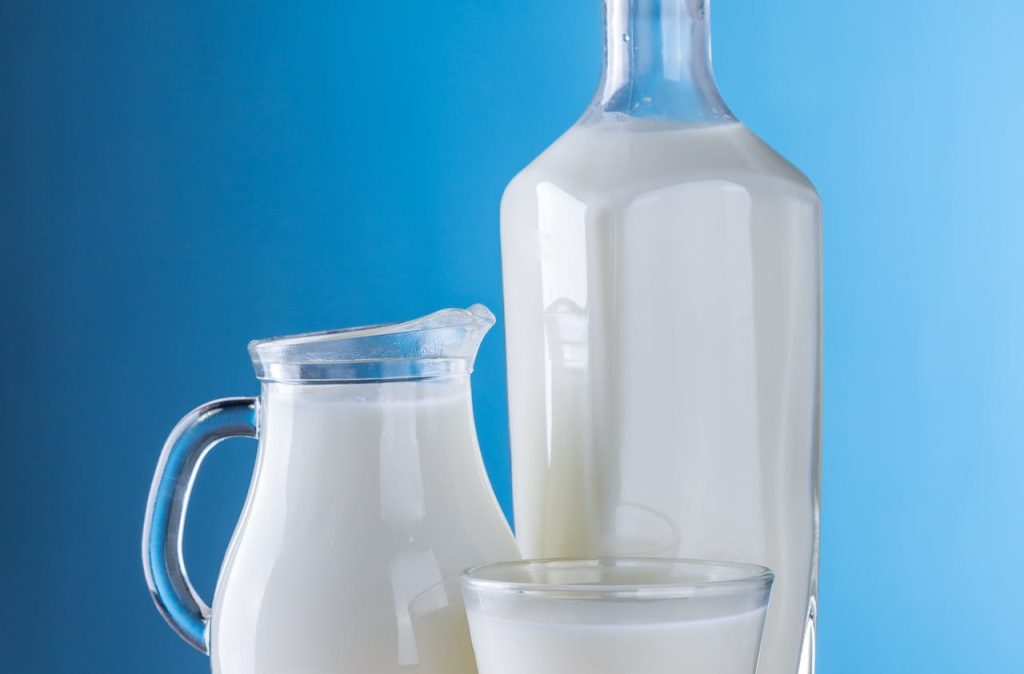Geschatte leestijd: 3 minuten
The fats in dairy do not increase the risk of death. You don’t have to replace full-fat milk, cheese, and yogurt with alternatives with less fat out of fear of cardiovascular disease. That is the conclusion of a large-scale study from Texas.
Is the glass of milk half full or half empty?
Popular products are almost always controversial. The more people love something, the more others look for reasons to hate it. Think of Drake, electric bikes, and bikinis. Dairy also belongs in that list. Reasons to hate dairy products come from various angles. Think of principled reasons (“milking is assault”), commercial reasons (“regular milk is dangerous, buy my milk”), and medical reasons.
Regarding the medical reasons, you would think that science would lead that discussion with research, data, and facts. Unfortunately, even here, commercial interests have shown their ugly face. Companies publish or fund research that supposedly shows that milk, for example, is actually very dangerous. Unless, of course, you buy the modified milk from that company.
More insight into milk
So if you really want to know about the effects of dairy on your body, you must be willing to spend 4 weeks with a bulldozer in the woods to first uproot all the nonsense trees. Then there remains an incredibly large forest of information. Writing a good article about milk and dairy is therefore almost impossible. An accurate article must describe and interpret all those different studies and their backgrounds. At the same time, you have to translate all that data into a readable form. Understandable and preferably not too long. An impossible compromise. My attempt to write about milk resulted in an article of over 15,000 words and 70 references to studies. Part I!
But time marches on, and so do the insights. In this latest study from Texas, the researchers were aware of the almost impenetrable forest of information about dairy. They opted for a typical Texan solution to contribute to the confusion: Go big! In this case, it means hitting colleagues with large numbers of participants and a lot of data.
Fats in dairy
The results of the University of Texas study were published last week in the
American Journal of Clinical Nutrition. The study found that there was no significant relationship between the fats in dairy and the risk of death. This specifically applied to the risk of death from heart disease and strokes, two of the most common causes of death in the US.
Moreover, a type of fatty acid in dairy may possibly help protect against a severe stroke.
“Our findings not only support, but also significantly strengthen, the growing body of evidence which suggests that dairy fat, contrary to popular belief, does not increase risk of heart disease or overall mortality in older adults. In addition to not contributing to death, the results suggest that one fatty acid present in dairy may lower risk of death from cardiovascular disease, particularly from stroke”
Marcia Otto, UTHealth School of Public Health.
No higher risk of death from dairy
The aim of the study was to investigate the relationship between (biomarkers of) the presence of fatty acids in dairy on the one hand and the risk of heart disease and death on the other. The study covered data over a period of 22 years. The researchers used methodological measurements instead of self-reported dairy consumption. Instead of asking people how much dairy they consumed, this was measured by looking at the amount of fats from dairy in the blood. This was measured at the start in 1992, after six years, and after 13 years. Almost 3,000 adults aged 65 and older participated in the study. According to the researchers, this method provides more and more objective insight into the long-term effects of these fatty acids.
None of the measured fatty acids were associated with the overall risk of death (from all possible causes). When specifically looking at the effect on heart and vascular diseases, however, one type of fatty acid showed a relationship with a lower risk of death. People with higher levels of the fatty acids from dairy had a 42% lower risk of stroke.
According to the researchers, (American) guidelines on avoiding full-fat dairy products should be reconsidered.
Reference
- Marcia C de Oliveira Otto Rozenn N Lemaitre Xiaoling Song Irena B King David S Siscovick Dariush Mozaffarian. Serial measures of circulating biomarkers of dairy fat and total and cause-specific mortality in older adults: the Cardiovascular Health Study. The American Journal of Clinical Nutrition, 2018

